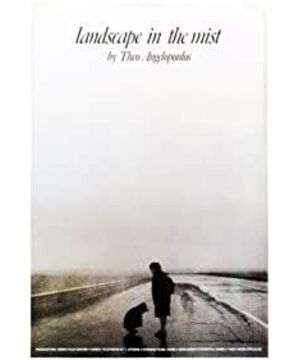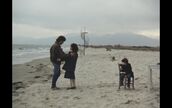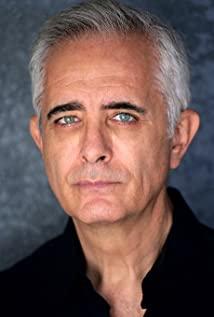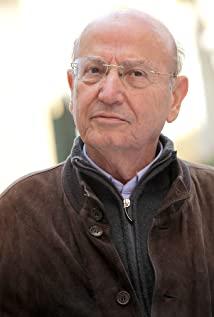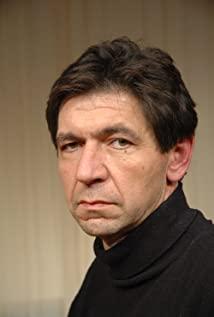Not yet Bella Tal - although his "Satanic Tango" and "Whale Circus" are terrific.
It was Theo Angelopoulos. A late Greek director.
Lying in bed last night to watch his "Landscape in the Fog". This is the third Anzhe feature film I've seen. The first two are "Eternal and One Day" and "The Gaze of Ulysses."
"Eternal and One Day" is a 2020 watch. I was very impressed. His shots are slow, quiet, and extremely unassuming. But the recoil is great. Because what he explores and shows is the inner landscape of man.
How to show a person's life by photographing his day. Watch Eternity and a Day.
The day after I finished reading "The Gaze of Ulysses," I ran to the 47 Tree Library and carefully read the brick-thick Joyce novel "Ulysses." Decided to conquer this 1009-page book in the near future. 700,000 words about the life of a Dubliner in a day. It is the pioneering masterpiece of modern literature in the 20th century. Of course, it's hard to read.
Read 10 pages a day, spend 100 days, and read it for the first time. This is my initial idea. To this end, I bought a copy on Jingdong. It's easier to read your own book.
Of course, The Gaze of Ulysses is not based on the novel Ulysses. It's just that there is some kind of connection on the spiritual core. It is because of this connection that after watching the movie, I thought of this novel and wanted to find out.
Whether it is the novel "Ulysses", the movie "The Gaze of Ulysses", or the common source of inspiration for both, Homer's epic "Odyssey", they are all about a person's adventure journey.
The male protagonist in "The Gaze of Ulysses" braved the flames of war just to find the three rolls of film left in the world by his predecessors. In the end, after a lot of hard work, he found it, completed the development with the help of a friend, and saw what was recorded on the film.
But it also paid a huge price.
It seems that the behavior of Don Quixote is actually full of nostalgia in the heart. A melancholy where ideals have nowhere to go.
The film presents a melancholic spiritual epic. Through the flames of war, through the dangerous situation, at any cost, only to rush to the remaining ideal goal in the heart.
As long as you see that there is such a soul in this world, even if you are devastated, you still care for a ray of light in your heart. You will feel that this suffering body, after all, still has the meaning of suffering.
The taxi driver who shouted to the vast world in the heavy snow, "Ah, world, you are just like me, alone, alone, come, eat a cookie", acted like an alcoholic and a lunatic. people touch. That's the only bit of poetry left in the cold world. That is something outside forces can't take away.
With the first three volumes, An Zhe's images have become something I look forward to reading as soon as possible.
So, yesterday I had a viewing of "Landscape in the Fog".
Unprepared, hit. It turned out to be such a subject, and it turned out to be such a beautiful and heart-pounding image.
I was sucked into it quickly. It's like a tornado. Of course, very quiet.
Watching Angela, Bella Tarr, watching Tarkovsky's images, and some other European directors, such as Aki, Kusturica, always gave me a sense of familiarity. A nostalgic feeling. I always feel that the space presented by those images seems to be similar to my childhood, although I have never set foot on the land there.
The images created by these directors are very different from Hollywood images. Hollywood follows neat narrative logic and certain tension-producing laws, and sees slowness, coolness, and idleness as enemies. As little or no as possible. Hollywood's big rule is "tell a good story." These European directors would think that's naive. They are more grown-up, and they also leave more space in the image for the inner poetry.
It is this kind of poetry, this kind of calmness, not being pressed by the story itself, not being kidnapped by narrative logic, that allows these images to create a more complex experience.
In "Landscape in the Fog", the little boy who ventured away from home with his sister and went to find his father in the distance. Standing on a snowy street, a horse was pulled by a cart and passed by him. The rope was broken, and the horse lay on the ground and struggled. about to die. The little boy was crying. In the distance, the hilarity and singing and dancing of people at the wedding came from the building. The snowstorm, the dying horse, the crying of the little boy, the singing and dancing in the distance, these scenes are mixed together and hit people's hearts. I instantly remembered Lu Xun's description: "A man downstairs was sick to death, and the family in the wall was singing a gramophone; the opposite was a kid. Upstairs, there were two people laughing wildly; Mother. The joys and sorrows of human beings are not connected, I just think they are noisy."
The movie, in such a short few minutes, perfectly portrays such disjointed joys and sorrows.
The little girl in the movie fell in love with the big brother when she was about to part with a young man who took care of their sister and brother, whom she met on the journey, but she was so young that she could not express her inner feelings. , her several attempts have hit a wall. When the station was about to leave, she said bluntly, "Don't go now." Reluctantly bought herself more time together. However, instead of winning a love affair, he found out that the other party was gay and sold his body in exchange for some pocket money. After being hit, she took her younger brother and left in a hurry. The young man chased after him on a motorcycle and wanted to take her and her brother to the station. She ignored it. Eventually, the young man hugged her under the empty street light. It was a meaningful hug. Emotional regret gets some make up in this hug. However, after hugging, it also means farewell to the end of the world. She was sobbing in his arms. At that moment, the movie showed us how much suffering and helplessness there are in life, and there are few happy moments. The scene under the street lamp, in my heart, may always be remembered.
There are not many movie scenes that can hit the soul with this kind of force. As far as Chinese-directed films are concerned, only a scene in Jia Zhangke's "The World" and a scene in Zhang Ming's "Pluto Hour" have a similar force in my heart. In Jia Zhangke's "The World", a Russian girl living in China by selling herself to survive, sitting on an open-air tricycle with a group of Chinese companions, driving on the empty night street, singing "Night on the outskirts of Moscow", is Jia Zhangke's film The scene that moved me the most. In "Pluto Moment", Zeng Meihui played a widow living in a mountain village, and the scene when she showed strong lust to the male film director who came to stay overnight but could not achieve it, also hit people deeply.
"Landscape in the Fog" records the inner scenery of the weak and ordinary people. I think the various images and thoughts flowing out of this film in 2 hours are a vivid record of the most common and fragile heart of human beings.
Wake up this morning and continue browsing An Zhe's images. As a result, I finished watching a nearly 4-hour "Wandering Artist". At first, I felt a little boring, but slowly, I entered the life of these wandering artists in the video. Follow them through the trials and tribulations brought about by time, time, and fate.
This film tells the life and fate of a Greek family entertainment group during the turbulent years between the 1930s and 1950s.
An Zhe's long shots are very calm, restrained, and without any intention of sensationalism, and even rarely take close-up shots of people's expressions, and more often use some distance shots to show the group of people as a whole, or a single individual, How to escape like a mouse to avoid war and fate. Joy is always short-lived, and what is more long-term is the test and torment of people's will to survive, and bad luck often dominates their lives.
Looking at this group of "eggs", I often face the surging stones, some of them are broken, and if they are not broken, they will lose all their dignity and dignity in order to survive. In the cruel world, they are a silent group, and they may be robbed of their fragile lives by the wind and stones at any time.
The calm scene and the restrained display, but it makes people feel embarrassed.
That's the power of movies. Intuitively show you: how hard it is for people to survive in the world. All kinds of "isms", all kinds of powerful forces that call for justice, you come and go, but no one has brought real stability and happiness to ordinary people. Ordinary people are like cud dogs, but the world is so unkind.
Similar themes in China may be counted as "Alive" by Zhang Yimou and "Farewell My Concubine" by Chen Kaige. However, compared to the latter two, I prefer the quietness, slowness, and sense of distance in Anzhe's feature film. The camera watched the ups and downs of this group of people from a distance, and rarely observed closely, and did not use extreme video methods to express the author's position.
However, after watching it, the audience is naturally drawn into it, creating a strong sense of empathy.
Think about it, this kind of expression with a sense of distance is really clever. The author is calm enough, and life and destiny itself, as long as you see it clearly, you will be embarrassed.
It makes sense that An Zhe is considered a master. The images he creates are treasures that record the living conditions and inner landscapes of human beings.
Unfortunately, such images are rarely seen nowadays.
View more about Landscape in the Mist reviews


